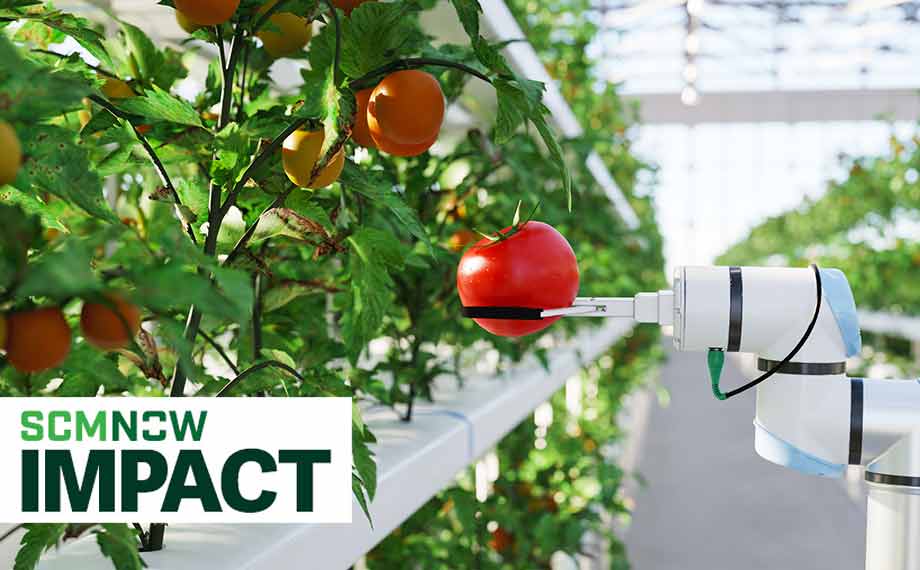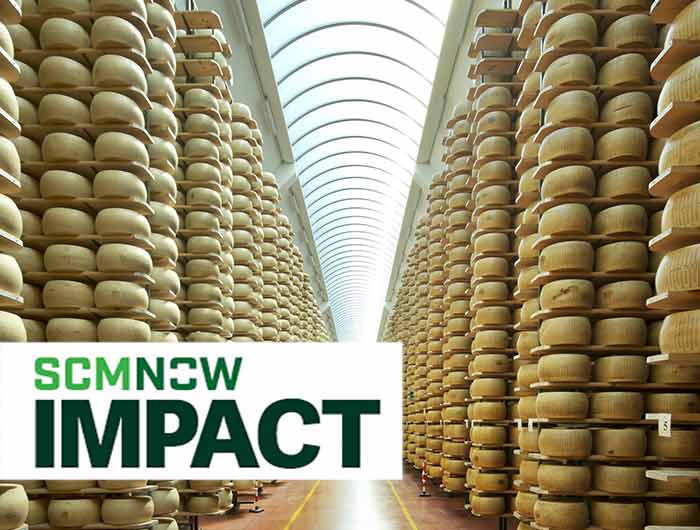Food and beverage innovation comes in many forms — from edible microchips in a wheel of cheese to blockchain-based traceability on a crate of wine to AI-controlled temperature regulation. And as these technologies improve, so do the companies — and employees — taking advantage of the latest tech solutions.
This week in the news, Kraft Heinz is using AI to improve quality, safety and visibility in its supply chain: “The ability to make data-driven decisions in real time has shifted the company’s supply chain approach from reactive to proactive,” reports Supply Chain Dive. This includes using a machine-learning model to reformulate its products’ nutritional profiles. Kraft Heinz is even using AI to quality check cucumber truckloads to ensure the veggies are suitable for the Claussen pickle production line. So far, this has made pickle production 12% more efficient.
Notably, the company hasn’t cut out the human element in the process; rather, its new generative AI tool PlantChat is designed to gather insights from employees while they make strategic decisions. A company spokesperson told Supply Chain Dive, “We want to automate processes where it makes sense while ensuring humans are in the loop and their efforts are focused where needed most.”
Other trends in AI study the customer more directly. CNBC reports that Talabat, an online food ordering service, is leveraging AI to predict and learn from user behavior on its app in order to “persuade more customers to order” rather than abandon their carts. “With AI, you can go very deep to the single individual and know exactly what that person is more likely to want or not,” Talabat’s CEO explains. This enables the company to make better recommendations and offer incentives, which encourages shoppers to press the order button. Based on these and other innovations, global market research firm The Business Research Company predicts that the AI-driven food technology market will reach $27.73 billion by 2029.
Meanwhile, Forbes reports on startup Stocky AI, which is “using AI to revolutionize inventory management and minimize food waste, demonstrating the technology’s far-reaching impact on the food ecosystem.” The company describes its approach as “integrated ordering and invoicing with account management, accurate inventory tracking with traceability, and digital harvest records for producers.”
Forbes also explains how food and beverage company Danone is “partnering with Microsoft to enhance logistics and streamline production.” The two businesses are even collaborating to launch Danone Microsoft AI Academy, which will train workers to use AI. The collaboration is described as “dedicated to upskilling all Danone employees to ensure that [they] are equipped with the AI and digital tools they need to thrive in the new AI-driven economy.”
Secret sauce
No matter how AI advances in the near and distant future, it’s people who will make the technology a success. To make sure you have the necessary skills, check out ASCM’s Supply Chain Technology Certificate. Beyond learning to maximize AI, you’ll have access to more than 20 hours of education about advanced analytics, cybersecurity, additive manufacturing and lots more. Get started today and discover how tech can add the perfect seasoning to your supply chain strategy.



